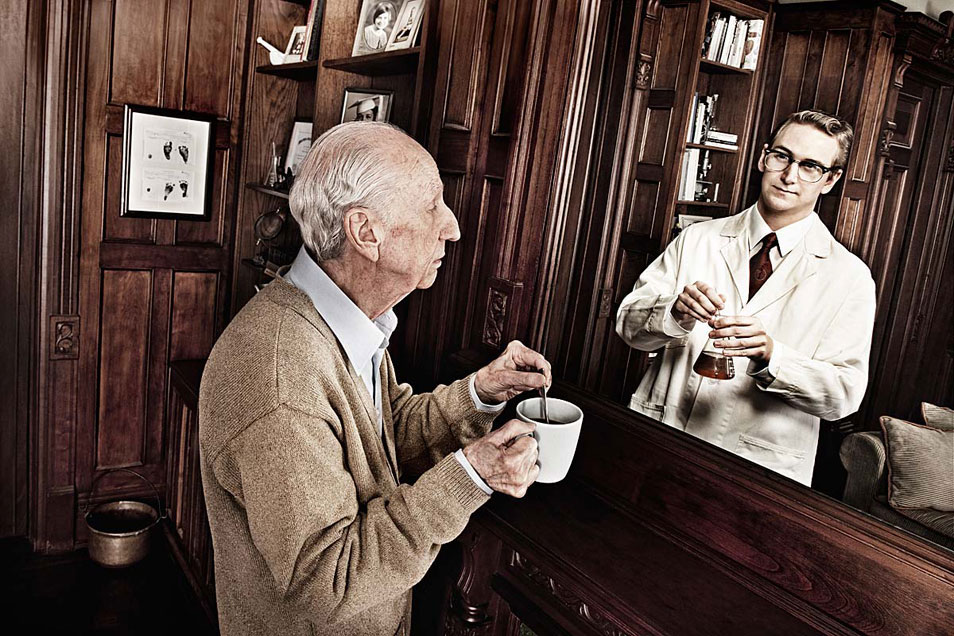Looking back at this semester, our seminar reminds me of Alice's journey in
Through the Looking Glass. Even at it's most basic, the class was the mirror through which we traveled to discover another world. In the world of recursive structures, there are many connections to our external world, we just fail to to take the time and notice them. When Alice first finds herself on the "inside" of the looking glass, it is the same, and yet different. Characters and settings are exaggerated, and it is not until she seems to wake up and believe that the Red Queen was her kitten, Kitty, that the link is established in Alice's mind.

This class really did a similar thing for me. Through literature, we jump into a different world, influenced by our own interpretations of the outer world. The readings and discussions allowed me to look back at my own world from the inside of the mirror (in this case, the seminar), and I discovered the interconnectedness and recursive layers in my own life. For, indeed, life is not just disconnected events, but is all connected and could not meaningfully exist without being woven to others.
This might be getting a bit cliche, but it is the recursion and conscilience that create meaning. I can do something or think something, but unless it is tied to others, there is no effect. That is not to say that everything needs a concrete link to a cause and resulting effect, but I do believe everything has at least a weak connection to something else, or else it wouldn't be in existence.
Now leaving the class and returning to the "traditional" side of the mirror, I can look back at all we did in class from the outside point of view. I learned so much in this class. Not only specifically about the books we read, but history, theology, psychology, language, mythology, science, math, and a sprinkling of just about everything, or so it seems. Not to mention the fact that I know have a list of books to read about a mile long - at least I will not be bored over winter break!
I guess what it all boils down to in the end, is that the moral of the story is the story. As we all experienced in this seminar, there is always another layer to be discovered, making it impossible to perfectly sum things up in a little thematic statement. I remember a connection I made in the beginning of the semester back to the changing story of Cinderella. I thought I had traced it all the way back to the beginning when it was a french fairy tale, only to have Dr. Sexson trace it all the way back to mythology, and remark that it goes on even farther than that. Therefore, we have to enjoy the story for what it is - always striving to learn more, but appreciating we will never be fully able to grasp the entire thing, for that would require complete knowledge and understanding. We must learn what we can, but never think it is over.
Thank you, Dr. Sexson, for an incredible class and opening my eyes to the beauty, complexity, and challenge of not only the literature we read in class, but of everything everywhere.





